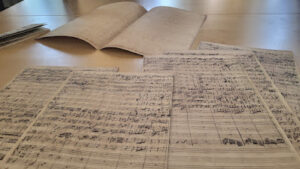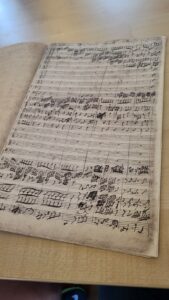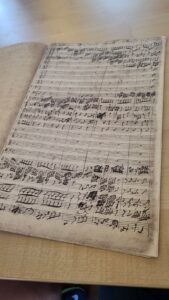
I’ve been reflecting a bit on the impact of endowments and how they allowed for two performances every [interval] from 1753 to 1928, only interrupted by hyperinflation. The influence of that endowment on music over the years is truly staggering; it transformed so much and left a lasting legacy that astounded me.

On a related note, when I consider the financial aspects, I can’t help but think about the social mobility it provided to some of the boys in the choir. It opened up opportunities for them in significant ways.

In his cantata BWV12, I found it fascinating to observe where he made edits. He composed without a pencil, so it’s interesting to notice where he had ideas written down before setting them to music.

It was intriguing to see that Bach didn’t issue strict dictates; instead, he offered directives to the university students in his inner circle who were involved in poetry. He would ask them to take one specific Lutheran hymn with eight stanzas and rearrange it. They were to keep the first and last stanzas intact while reworking the others into four or five movements. I find this collaborative approach quite intriguing!
Great observations, Malcolm! When I was writing my book on baroque music, I became especially fascinated with the ways in which music afforded upward mobility for young boys (mostly). IN a society with no radio, recordings, Spotify, live music mattered and you needed live people to do it!
The endowments were truly interesting — I didn’t know about that until Prof. Wollny shared that with us! Glad you’re enjoying these explorations!